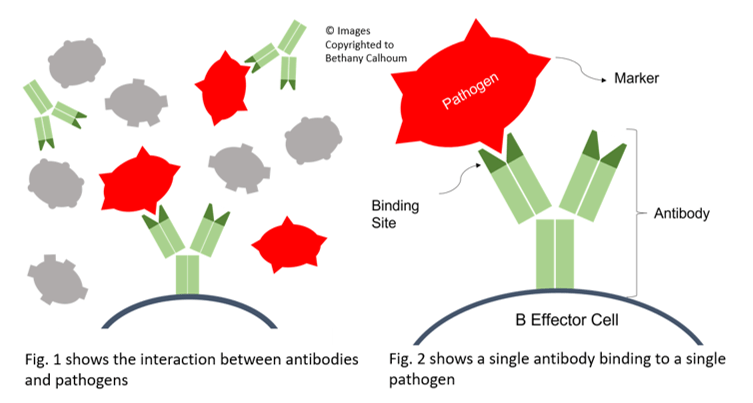
At My Pet Nutritionist, we regularly help people with their pets suffering with Leaky Gut Syndrome. There is a lot of evidence to link Leaky Gut with a variety of autoimmune diseases; issues we so very often offer support for. Read on to learn more about Leaky Gut, and the role it plays in autoimmunity.
The condition is growing more and more common in both us humans, and our canine counterparts, and can lead to some pretty serious health issues, long term.
The name ‘Leaky Gut’ does somewhat give the game away, but let’s look deeper into what actually happens in the gut of a normal dog,compared to one with Leaky Gut.
In healthy individuals, after eating, the food passes through the gut. The gut consists of the stomach followed by the small intestine, followed by the large intestine (known as the ‘colon’), through which nutrients from the digested food are absorbed, before the waste is pushed out through the rectum, then anus. To enable a large surface area, for optimum nutrient absorption, the small intestine is lined with small finger-like structures called villi, which themselves are covered in even smaller finger-like structures, known as microvilli. The gut also houses lots of good bacteria to aid digestion – the colonies of good bacteria, along with yeast cells, any viral particles, or parasitic burdens, are collectively known as the ‘microbiome’. The gut wall is extremely thin, to allow efficient nutrient absorption. The cells lining the gut stay close together, and are supported by the interactions of immune cells, and good bacteria in the gut.
In those suffering with Leaky Gut, inflammation occurs in the gut for various reasons, which causes the tight intestine wall to permeate, creating microscopic channels between the cells. Proteins/partially undigested foods then leak out through these channels and are detected by the immune system as a threat, causing a histamine response to occur, which is why one of the most common symptoms of Leaky Gut, is food intolerances.
– Autoimmune Diseases
– Issues with stools or sickness
– Joint issues
– Yeast
– Problems concerning other major organs in the body
– Hypothyroidism
– Changes in behaviour; often anxious behaviour and short tempered behaviour
– Over-use of vaccines; the adjuvants damage the gut flora
– Use of certain pharmaceuticals
^ Flea, tick, and worm medications; they disrupt the gut microbiome by not only eradicating the visiting parasites (or often lack thereof), but the good bacteria too.
^ Antibiotics; these wipe out the good and bad bacteria
^ Antihistamines; these can interfere with the production of mucus in the gut, and can also interfere with the proper functioning of Diamine Oxidase (DAO), which is the enzyme responsible for breaking down, and removing histamine from within the gut.
^ NSAIDs and Steroids; these can cause ulcerations in the gut and interfere with mucosal production.
– SIBO and Yeast overgrowth; Small Intestine Bacterial Overgrowth and Yeast damage the gut lining
– Diet; feeding a dry food diet can put stress on the gut. Kibble often contains Glyphosate, which is an antibiotic herbicide and is toxic, as well as very damaging to the gut. Diets inclusive of legumes and other high-lectin content pulses, nightshades and vegetables may contribute to Leaky Gut as lectin causes poor gut integrity. Microscopic moulds often found on kibbles, known as mycotoxins are also detrimental to gut health, contributing to Leaky Gut.
– Stress can have a huge effect on the gut integrity, as stress leads to inflammation
– Ageing; as our dogs age, the microbiome becomes less diverse which leads to gut damage.
Read our full Gut Dysbiosis blog here
To better understand the link between Leaky Gut and Autoimmunity, we need to understand more about autoimmunity, what it is, and how it affects our pets (and us too!).
Autoimmunity is sadly fairly common in both humans and pets and is often overlooked. When an individual has an autoimmune disease, the immune system releases antibodies and T-Killer Cells (cells of the immune system which target and kill cells infected with viruses and cancers) even when they are not in the presence of a necessary target, which causes them to attack normal, previously healthy parts of the body. In layman’s terms, the body attacks itself!
There are more than 80 different autoimmune diseases in existence, though not all of these affect dogs.
– Hypothyroidism
– Inflammatory Bowel Disease (IBD)
– Immune-Mediated Haemolytic Anaemia (IMHA)
– Diabetes
– Immune-Mediated Trombocytopenia (ITP)
– Rheumatoid Arthritis
– Hypoadrenocorticism (Addison’s Disease)
– Periodontal Disease
– Degenerative Myelopathy
– Immune-Mediated Polyarthritis (IMPA)
– Systemic Lupus Erythematosus (SLE)
– Discoid Lupus Erythematosus (DLE)
These will, of course, vary depending on which autoimmune disease an individual has, but general signs and symptoms of autoimmunity, which may spark a look into further investigation with your veterinarian, include:
– Constant lethargy
– Racing, or very slow heartbeat
– Weight loss (often dramatic)
– Increased panting
– Collapse
– Excessive drinking and urination
– Seizure activity
– Discolouration of gums and skin – occasionally yellowish as a result of jaundice.
– Hair loss or coat texture changes
– Regular vomiting and diarrhoea
– Increased temperature
– Behavioural changes, including aggression or depression
Read Part 2 here to find out more on the autoimmune diseases affected by Leaky Gut, and how we can support the body, naturally.
If you feel your dog may be experiencing Leaky Gut, or an autoimmune disease, seek veterinary attention, and book in for a consultation with one of our team!
Team MPN x






